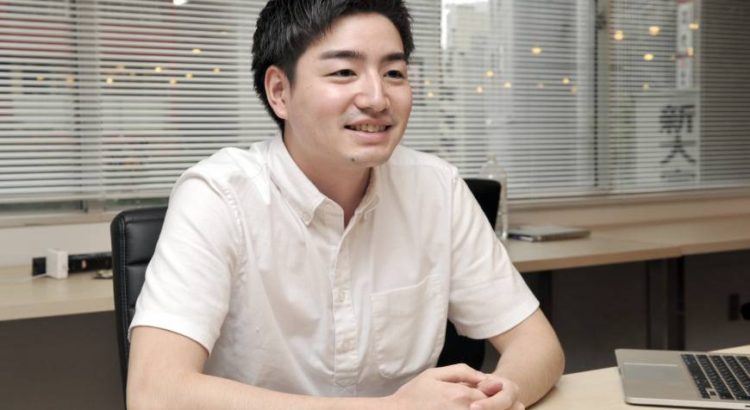Asia/Japon/03 de Julio de 2016/Autora: Magdalena Osumi/Fuente: The Japan Times
RESUMEN: Los estudiantes extranjeros que desean estudiar en Japón probablemente deseen hacer un millón de preguntas antes de dar el paso. ¿Qué escuelas y universidades ofrecen clases de Inglés? ¿Qué clase de programas de becas hay? ¿Cómo se encuentra la vivienda? ¿Hay trabajos de medio tiempo disponible? Pero teniendo en cuenta los sitios web y la barrera del idioma, muchos encuentran las respuestas difíciles de alcanzar. Introduzca Shota Morikawa, un empresario de 24 años de edad que se está forjando un nicho para sí mismo en la industria de la educación, donde la tecnología web se mantiene bastante baja.En septiembre pasado, Morikawa lanzó ST reserva, una ventanilla sitio web que ofrece información a los estudiantes extranjeros que desean estudiar en Japón.
Foreign students looking to study in Japan would probably want to ask a million questions before taking the plunge.
Which schools and universities offer classes in English? What kind of scholarship programs are there? How does one find housing? Are part-time jobs available?
But given the language barrier and school websites that are less than helpful, many find the answers elusive.
Enter Shota Morikawa, a 24-year-old entrepreneur who is carving out a niche for himself in the education industry, where website technology remains fairly low-tech.
Last September, Morikawa launched ST Booking, a one-stop website offering information to foreign students who want to study in Japan. Morikawa wants schools to use his site as a marketing platform to recruit students, just like prospective home owners use Suumo.jp, a popular real estate search engine.
ST Booking provides information on language schools, universities, housing and job opportunities in Japan — everything you’d want to know.
“Access to information on educational programs in Japan is still limited,” Morikawa said in an interview. “This industry has not changed over the past five decades. There are no young people working in this business, so the whole system is outdated and doesn’t suit the current needs.”
Given the problems caused by Japan’s shrinking population, Morikawa believes his website can help Japanese schools recruit in a more effective and efficient way than the traditional promotional events they hold at home and abroad.
He said many schools with attractive programs, including English-based curricula and scholarships, simply aren’t doing a good job attracting students — Japanese or otherwise — in the internet age.
“The information on schools’ websites is either in Japanese only or hard to find, which discourages prospective students from seeking the answers,” he said. “That’s a huge loss for schools because many of them are struggling to attract foreign students.”
His website has since become a platform for Japanese schools and overseas agents eater to network, he said.
A Hyogo Prefecture native, Morikawa himself studied in the United States for a year as an exchange student at Portland State University in Oregon.
The only reason he chose Portland State was because his school, Waseda University, had an exchange program with it. He didn’t even bother looking at other universities.
“Later I realized I could have chosen from other possibilities that I had no idea about,” Morikawa said.
It was this realization that access to information is crucial to young foreign students that led to him to start ST Booking.
At first, however, the idea was just one of about 50 other business ideas he was mulling.
Born into a family of entrepreneurs, Morikawa always thought he would start his own business by the time he was 30, just like his parents did. So his plan was to enter a company first, study how to start a business, then establish his own.
But after returning from Portland, quitting Waseda and working at consultancies and venture firms, he witnessed countless young entrepreneurs his age launching startups, going bankrupt and starting over. That kindled his entrepreneur spirit.
So he headed to Silicon Valley, home to world’s largest high-tech corporations and thousands of startups, to start a music streaming startup, only to close it within a year.
He then focused on an industry where technology had not yet made a splash — education.
With his international background — born in Hawaii with dual nationality — and a passion for computer programming, it didn’t take long for him figure out that a website catering to exchange students would be a perfect fit. Especially with the Japanese government eager to double the number of foreign students to 300,000 by 2020.
To differentiate his website from his rivals, including Ryugaku Journal or Education First, Morikawa decided to focus on services for Southeast Asia.
“There’s no service targeted at Southeast Asian students … this is an area where we can achieve a competitive edge,” he said. “The number of Vietnamese students is growing rapidly and the number of Southeast Asians coming to study in Japan will continue to rise.”
So far, ST Booking, which offers services in English, Chinese and Vietnamese, has offices in Tokyo, Vietnam and Taiwan, with a fourth expected to open in Thailand.
The company has already established a network connecting 60 Japanese universities, language schools and vocational schools in Japan with 1,100 agents in Vietnam, Thailand and Taiwan.
“This is our strength — our agents are based not only in Japan, but also in those countries” it targets, Morikawa said.
The firm, launched with venture capital of $200,000 (¥24,000,000), makes money by charging schools commissions for students recruited via ST Booking and from promotional fees for advertising their academic programs to contractors in Asia.
“We want people to associate studying abroad with ST Booking — this is our goal for this year,” he said. “The government wants to boost the number of incoming students to 300,000 by 2020, but I want to boost it to a million.”
That seems ambitious for a startup still testing the waters. So far, Morikawa’s firm has received dozens of inquiries and four students have completed the application process.
But the long road ahead won’t discourage him from taking up the challenge.
“There’s no point in doing anything if you can’t reach number one,” said Morikawa.
“My parents never criticized me even when I stopped attending classes and quit university,” he said. “They would rather say ‘If there’s something you want to do, just do it.’ “

















 Users Today : 9
Users Today : 9 Total Users : 35460218
Total Users : 35460218 Views Today : 12
Views Today : 12 Total views : 3418907
Total views : 3418907